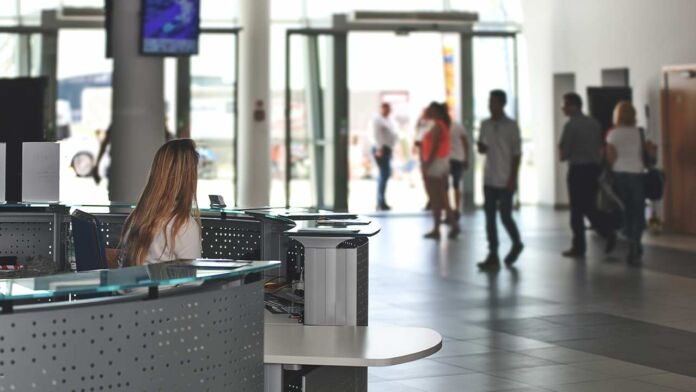Technology is rapidly transforming industries, and the hospitality field is no exception. In recent years, we have seen hoteliers, restaurants, and travel agencies implement cutting-edge innovative solutions to streamline operations and enhance guest experiences. In this article, we will explore some technological advancements that are reshaping the hospitality industry and providing guests with unforgettable experiences.
Artificial Intelligence and Augmented Reality
Artificial Intelligence (AI) has taken the world by storm, offering unprecedented potential for businesses to improve customer service and personalize the guest experience. With the advent of AI-powered chatbots hotels and restaurants can now provide 24/7 assistance, answering guests’ questions, managing reservations, and automating the check-in process. This technology not only saves time and labor costs but also allows hospitality professionals to focus on delivering top-notch service and creating lasting memories for their clientele.
Virtual Reality (VR) and Augmented Reality (AR) are revolutionizing the way travelers explore and interact with their destinations. VR and AR solutions enable hotels to offer immersive virtual tours and showcase their properties, allowing potential guests to experience their rooms, amenities, and surrounding areas before booking. These technologies can also enhance a guest’s stay by providing interactive maps, displaying local attractions, or even “game-ifying” the hotel experience, captivating their imagination and turning the travel experience into an adventure.
The Power of Automation
Robotics and automation are making waves in the hospitality industry, assisting with various tasks such as cleaning, luggage handling, and even serving food and drinks. By automating routine and repetitive tasks, robotics allow hospitality staff to focus on delivering extraordinary service and creating unique experiences for guests. Moreover, robots and automated solutions can enhance the guest experience by providing quick and efficient service, reducing wait times and human error.
One interesting example of automated solutions is restaurant automation, which seeks to streamline the food service process and improve the dining experience for guests. Implementing this technology can lead to increased efficiency, better order accuracy, and enhanced customer satisfaction.
Internet of Things (IoT) and Biometrics
IoT technologies are transforming the way hospitality businesses manage their properties and cater to guest expectations. Smart rooms equipped with IoT devices offer a seamless experience, allowing guests to control the lighting, temperature, and entertainment systems through a single interface, such as a tablet or smartphone. IoT technology also provides real-time feedback on room status and equipment performance, enabling hotel management to resolve issues proactively and minimize disruption to the guest experience.
Recent advancements in biometric identification technologies, such as fingerprint and facial recognition, are becoming increasingly popular in the hospitality sector. These solutions offer enhanced security and simplify the check-in process by allowing guests to authenticate their identities without the need for physical keys, cards, or documents. In addition to streamlining operations, biometric identification can pave the way for more personalized guest experiences by recognizing individual preferences and customizing amenities accordingly.
Personalization and Analytics
Mobile applications have become indispensable tools for modern travelers, offering essential services and relevant information at their fingertips. Hoteliers are leveraging custom mobile apps to engage with guests, facilitate bookings, and offer personalized recommendations based on their preferences. These apps not only provide convenience but also help create more tailored experiences, fostering loyalty and enhancing guest satisfaction.
Big data and analytics are playing an increasingly important role in the hospitality industry, helping businesses generate actionable insights and make informed decisions. By analyzing large volumes of customer data, hotels can identify trends, patterns, and preferences, which can be used to optimize revenue management, create personalized marketing campaigns, and improve overall operational efficiency. This data-driven approach can lead to better decision-making and provide significant competitive advantages.
Sustainable Technology Solutions
As environmental concerns continue to rise, sustainable technology solutions are gaining prominence in the hospitality industry. Hoteliers are adopting eco-friendly technologies, such as energy-efficient lighting, water conservation systems, and waste management solutions, to reduce their impact on the environment and cater to the growing demand for sustainable travel experiences. By incorporating these green initiatives, the hospitality sector can not only minimize its ecological footprint but also position itself as a responsible and forward-thinking industry.
The hospitality industry is going through a transformative phase, thanks to the rapid advancements in technology. Embracing AI, VR, AR, IoT, biometrics, mobile applications, big data, and sustainable solutions can not only streamline operations and cut costs but also create unparalleled experiences that delight guests and make their stays unforgettable. Ultimately, the adoption of these innovative solutions will play a critical role in the future of the hospitality industry, shaping guest expectations and driving continuous improvement in service excellence.

